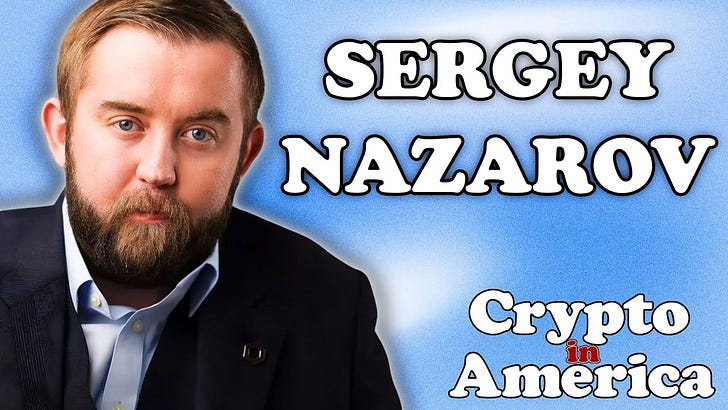Chainlink co-founder talks DeFi’s Global Edge in an Era of Tariffs and Deglobalization
Sergey Nazarov explains why DeFi’s borderless nature may become more valuable as traditional trade routes break down
Welcome to the Wednesday edition of the Crypto In America newsletter!
Following last week’s market turmoil, U.S. equities are showing signs of stabilization as the White House considers exempting certain tech and auto imports from the sweeping retaliatory tariffs proposed by President Trump on April 2. Crypto assets have rebounded from previous lows, though they are lagging today.
Bitcoin rose back above $85,000 this week after briefly dipping to $75,000 earlier this month, renewing optimism that decentralized finance (DeFi) may remain insulated from escalating global trade tensions.
But according to Chainlink co-founder Sergey Nazarov, DeFi will also feel the impact, just not in the way traditional markets do. Rather than being shielded from geopolitical shifts, he argues that DeFi may become more essential in a deglobalizing world, serving as one of the few remaining infrastructures capable of facilitating global financial exchange.
“In a deglobalized world, the few globalized systems left—like DeFi—gain immense value,” Nazarov explained in an interview with Crypto In America.
While tariffs may temporarily dent asset prices and raise inflation, he said, they also risk cutting down the number of financial and economic touchpoints between countries. In this new environment, blockchain-based systems like DeFi and tokenized assets may emerge as some of the only remaining global financial rails.
"DeFi and blockchains are inherently global. If everything else becomes deglobalized, they become even more important."
As Congress prepares to debate market structure and stablecoin legislation, Nazarov also points to tokenization as a strategic opportunity that could define whether the U.S. leads or lags in the next wave of global finance.
Catch the full interview with Sergey Nazarov on all platforms here.
Midweek Recap

ICYMI. Here are some of the biggest stories so far this week:
Crypto exchange Kraken is expanding beyond crypto and launching equities trading as it aims to become a one-stop-shop for traders. The company has already started rolling out commission-free trading for over 11,000 U.S.-listed stocks and exchange-traded funds in select states.
OKX, a crypto exchange based in the Seychelles, is expanding operations into the U.S. after recently paying $500 million to the Department of Justice for operating in America without a money transmitter license. The exchange has opened a new U.S. headquarters in San Jose, California and appointed Roshan Robert, a former Barclays and Hidden Road executive, as its CEO.
In an interview with Anthony Pompliano, Bo Hines, Executive Director of the White House Crypto Council, said the administration is considering using proceeds from tariffs to purchase additional Bitcoin. According to Hines, the move would be viewed as a budget-neutral strategy—allowing the government to acquire Bitcoin without adding costs for taxpayers.
The Securities and Exchange Commission has postponed its decision on whether to allow staking (earning interest) in Wall Street’s proposed Ethereum spot ETFs, pushing the deadline to June 1. The agency says it needs additional time to review the matter.
Tokenization platform Securitize has acquired MG Stover's fund administration business, making it the world's largest digital asset fund administrator with over $38B in assets under administration.
Remember, new editions of the Crypto In America newsletter drop every Monday, Wednesday and Friday at 7AM EST.
If you like what you’re reading, don’t forget to subscribe!





